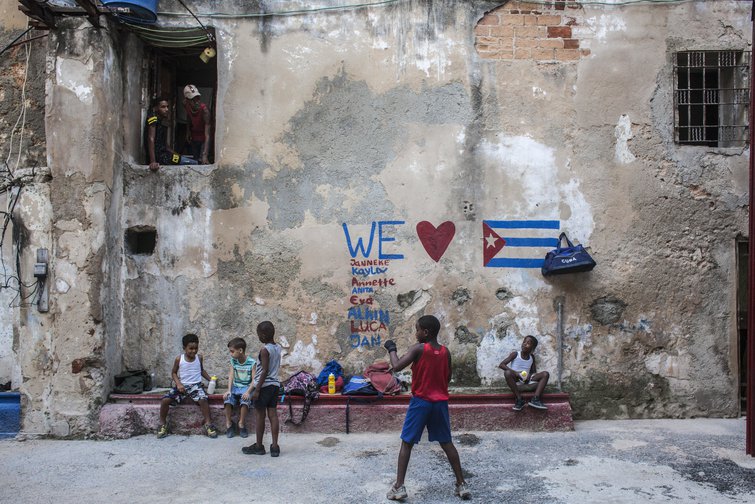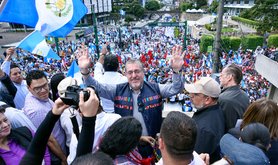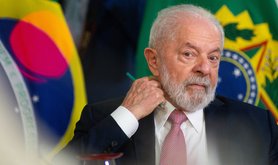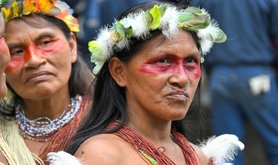
The Cuban lesson for happiness

Much of what is known about Cuba, a tiny Caribbean island off the coast of Miami, is through its international relations with The United States. In fact, the history of Cuba has been chipped and shaped - like pebbles worn away by ocean waves - by forces outside of the country. Today, Cuba is known for a handful of things: communism, cigars, Che Guevara, Fidel Castro, rum and of course its unique afro-spanish-jazz rhythms that swim through its cobbled-stone streets. On my recent trip to Cuba before the international lockdown to flatten the curve of COVID-19, however, I learnt something about the country through its people, and the sheer life pulsating off its dilapidated yet colourful baroque buildings that no tourist guide or history book could’ve told me.
I learnt about the art of happiness and how it’s seemingly embedded in Cuban culture right alongside the revolution, Cuban pizzas, coconut pastels, standing in line for chicken, and dancing at the drop of a beat.
Greek philosopher Aristotle had concluded that human life is dedicated to achieving happiness. The process includes realising your potential and engaging your virtues to not just be happy but be content. The word he used to describe the purpose of life was ‘eudemonia’, loosely translated to contentment in English. Happiness, according to Aristotle, wasn’t something that could be left only to chance. How many pieces of art would Salvador Dali have produced, or poems Maya Angelou written if they had left themselves only to inspiration. Like art is produced through everyday hard work and deliberation, so is happiness, said Aristotle, making it an activity and not just a state of mind.
I knew very little about Cuba before I travelled through the capital of Havana, the once French-occupied city of Cienfuegos, and finally to the UNESCO world heritage site of Trinidad. I knew about its rollercoaster relationship with America and how its embargoes determined how full or empty Cuba’s bodeguitas will be, or how long people will have to stand in line to get essential food and household items. I imagined it to be nothing more than a beach country, a place for its richer neighbours from The United States and Canada to come and drink high volumes of mojito for a long weekend.
We’ve got a newsletter for everyone
Whatever you’re interested in, there’s a free openDemocracy newsletter for you.
What I experienced, though, went beyond the constraints of its 896 miles coastline.
I witnessed that everyday life in Cuba isn’t easy. Fidel Castro’s overthrow of oppressive dictator Fulgencio Batista may have ended his corrupt and oppressive regime, but the people to this day continue to be suppressed economically and in civil liberties by its current government under the garb of communism. True to our identity as journalists, my travel-mates and I tried to engage many a people in conversations about their politics and history. We were there! On the ground! And what better way, we thought, to get a sense of the lived reality of the people that isn’t fed through state-owned media or through global mainstream media driven by their own propaganda. However, the fear of getting arrested meant very few Cubans budged. These were conversations reserved for safe inside spaces or obviously isolated landscapes.
People to this day continue to be suppressed economically and in civil liberties by its current government under the garb of communism.
One among them who budged was Danny, who rode us to Parque el Cubano in Trinidad in a horse carriage. As we strutted on the tranquil dirt paths of Trinidad, accompanied by a mountain range alongside us, he stopped in front of Montana del Escambray del Revolucion, where Castro hid from Batista’s military and said (in Spanish): “If Castro were alive right now and saw how the country and its people were doing, he’d die all over again.”
Salaries in Cuba are suppressed, rations are irrationally limited, and there is a lot of waiting in lines. A doctor - considered a top tier profession in most parts of the world with a loaded income - earns a meagre 90 CUCs in Cuba (approx. 128 CAD). To put this salary in perspective - a pizza on a street side cafe costs 2 CUCs. The government has allocated small amounts of rice, beans, coffee and other essential items to each person. This means a lot of people “va a la izquierda” - turn to the left, that is the opposite of right, that is the black market. Most of the mercados (markets) we walked in were empty. There were a few products like decorations on shelves. Every day we saw people waiting in line for something or the other. Fresh produce, however, was plentiful. Fun fact: Cuba is a world leader in sustainable production of fruits and vegetables and produces much of its own stuff.
Yet despite the everyday mode of survival that Cubans are accustomed to, there was life on the streets. I felt and experienced a vibrant energy. Music and rhythm spilled out of every dilapidated balcony in Havana, no matter the AM on the clock. Everywhere I walked, the idiosyncratic afro-Spanish Cuban beat of tak-tak-tak taktak followed me, filled my ears and as if encouraged me into a quick salsa step. It didn’t care for my timidity.
“La situación es muy complicada aqui,” (The situation here is very complicated) is a phrase that I heard a lot in Cuba. Is it a way of explaining inexplicable complexities away
My curiosity piqued about this ‘against all odds’ mentality I saw everywhere. I come from a less developed country, India, and live in one of the world’s richest and developed countries, Canada. Up to 20% of Canada’s youth are affected by a mental illness or disorder, and in India in 2016, 10% of the adult population was experiencing a mental illness. Both these nations couldn’t be more far apart, yet both its people experience high levels of mental health problems. Cuba is closer to India in terms of development, but its struggles, in its own ways, are deeper and more nuanced than India. At least, the people in India are free and living in a democracy. But despite the lack of freedom in Cuba, people seemed to be involved in an act of deliberated liberation. There was an air of relaxation, tranquillity and happiness. How’s that?
On our second night in Havana, my friends and I ended up at Bar Cristo again. Its swaggy live music and friendly faces had drawn us back. We made friends with the band, and I couldn’t help but ask for their secret. Millions of books have been written on the art, but people here were living it without a lesson or degree. “Happiness is a part of our culture. Like music,” said one of our new friends. “It’s very hard to change our situation here, but we can still change our minds.” Both Aristotle and the Buddha hugged tightly in their graves. If Cubans had left happiness to chance, then the difficulties and dilapidation around them would leave happiness to a distant dream.
Like in any authoritarian country, the government is ready to arrest you at the drop of hat. But in Cuba’s case, they are ready to arrest you at the drop of a rhythm. That’s why the people steer clear of talking politics, in case you say something against the government and system and end up in prison. Their suppressed salaries are a way to keep people stuck in a constant mode of survival, where there is little time to concoct another revolution. But at least, everyone is more or less equally suppressed which leaves little room to envy thy neighbour.
“La situación es muy complicada aqui,” (The situation here is very complicated) is a phrase that I heard a lot in Cuba. Is it a way of explaining inexplicable complexities away? Today, when one third of the world’s population is under some version of a lockdown, we can learn a lot from Cuba on being happy. When little can be done about the present moment, the present situation, a lot can be done with a smile on your face. No matter how forced or deliberated, no matter how hard in the toughest of times. In Cuba, at least, Aristotle rests his case.
Read more
Get our weekly email




Comments
We encourage anyone to comment, please consult the oD commenting guidelines if you have any questions.